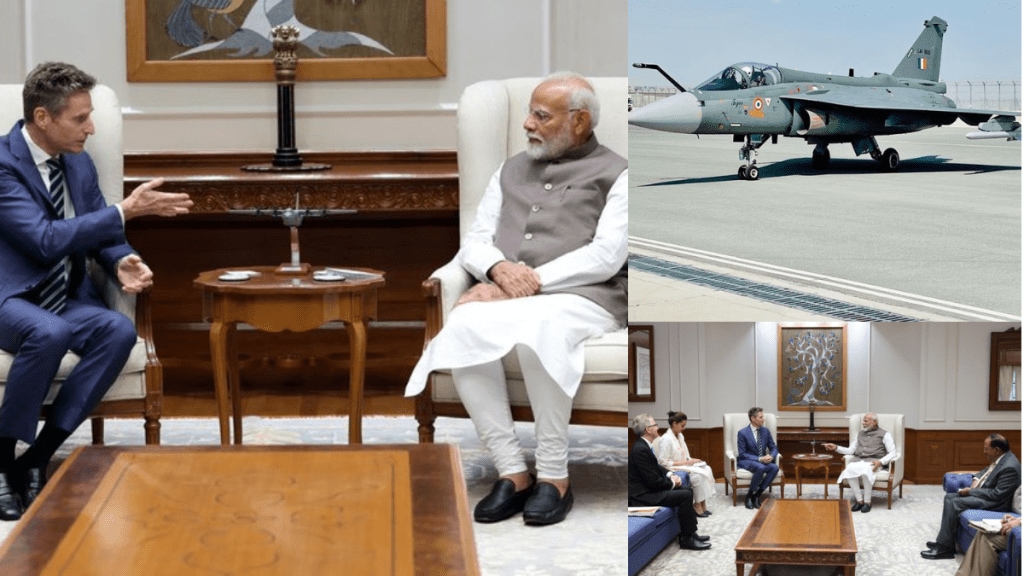The Indian Air Force (IAF) is increasingly concerned about delays in the Tejas light combat aircraft (LCA Mk-1A) programme, which could impact its combat readiness. Senior IAF officers have urged Hindustan Aeronautics Limited (HAL) to ensure the timely delivery of the 83 jets contracted under a Rs 48,000-crore deal.
As reported previously, the delay is likely to affect fighting capabilities of the IAF. According to information in the public domain, the IAF was expected to receive the first Mk-1A aircraft earlier this year.
The state-owned HAL aims to deliver the first aircraft next month, after completing the necessary certifications. The state-run firm has committed to delivering 16 fighters in the financial year 2024-25 and completing the entire order by 2028-29. However, scepticism remains within the air force, primarily due to prolonged delays in receiving the F404 engines from US-based GE Aerospace, which has pushed back the production schedule by around 12 months.
The Engine Delay
The contract between HAL and GE, signed in August 2021, required GE to supply 99 engines starting in March 2023 to meet the IAF’s requirements. GE was expected to deliver engines in sync with HAL’s production rate of 16 aircraft per year.
As reported in 2021, HAL placed an order of Rs 5,375 crore for 99 F404-GE-IN20 engines and support services with GE Aviation, to power the `Tejas’.
However, as of now, GE has failed to deliver a single engine, citing global supply chain issues. The first two engines are expected by the end of September or even later, but doubts linger about the timely arrival of subsequent engines.
The Tejas Mk-1A’s maiden flight on March 28, 2024, used reserve Category B engines, which may have been used in the past or were part of an earlier deal with GE. This reliance on reserve engines underscores the urgency of receiving new engines to maintain the production schedule.
HAL’s Production and DRDO’s Kaveri Engine Setback
HAL has established a new production line in Nashik, in addition to its Bengaluru facility, aiming to produce up to 24 aircraft annually. Despite these efforts, the IAF remains wary due to past delays. The IAF issued a Request for Proposal (RFP) to HAL in April for an additional 97 LCA Mk-1A fighters, signalling its continued commitment to the programme.
The root of the engine issue lies in the failure of the Defence Research and Development Organisation (DRDO) to develop the indigenous Kaveri engine, initially intended to power the Tejas. The Kaveri project, launched in the 1980s, faced multiple technical and funding challenges, leading to its eventual abandonment. The inability to produce a viable indigenous engine forced India to rely on foreign suppliers like GE, resulting in vulnerabilities to external supply chain disruptions.
Implications for IAF’s Fleet and Combat Readiness
The delay in the Tejas Mk-1A programme exacerbates the IAF’s existing fleet challenges. The MiG-21 Bisons, which are due for retirement, still form a significant part of the fleet. The IAF has relocated its remaining MiG-21 squadrons to consolidate its operational capabilities while awaiting the new Tejas aircraft.
The increased reliance on other aircraft, such as the Su-30 MKI, has led to more flying hours and greater wear and tear, raising maintenance demands and operational costs.
Future Prospects and MRFA Programme
The IAF is also eyeing the procurement of 114 multi-role fighter aircraft (MRFA) to further bolster its capabilities. The main contenders for this project include the Rafale, F-15EX, Gripen, and F-21. The Rafale, which was procured under an emergency deal in 2016, is considered a front-runner. However, the government has yet to clear the MRFA project for tendering.
Lockheed Martin’s CEO was in India on Friday, possibly promoting their F-21 fighter jets as part of the MRFA programme. This visit underscores the strategic importance of the Indian market for global defence manufacturers and the competitive nature of the MRFA contract.
PMO on X posted: “CEO of @LockheedMartin, Jim Taiclet met Prime Minister @narendramodi. Lockheed Martin is a key partner in India-US Aerospace and Defence Industrial cooperation. We welcome its commitment towards realising the vision of ‘Make in India, Make for the World.’
The LCA project, sanctioned in 1983 to replace the MiG-21s, continues to face hurdles. Despite the delays and challenges, the IAF’s leadership remains committed to the LCA programme, viewing it as a crucial component of India’s defence indigenization efforts. The eventual induction of the LCA Mk-1A, Mk-2, and the Advanced Medium Combat Aircraft (AMCA) is expected to enhance the IAF’s combat power, though the road ahead remains fraught with challenges.

